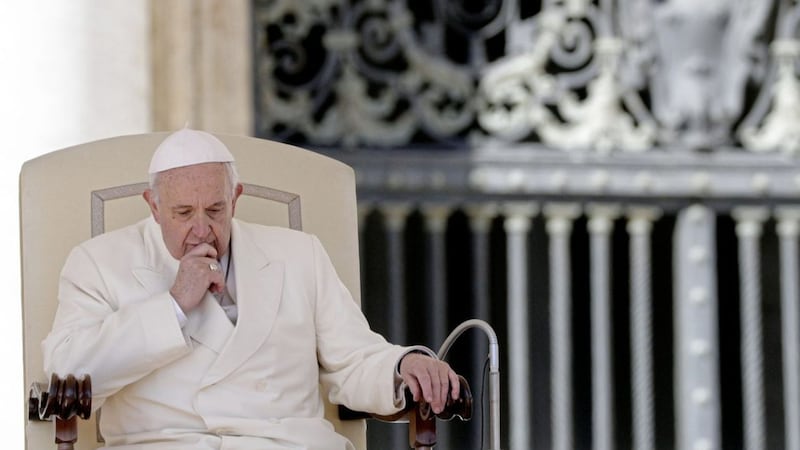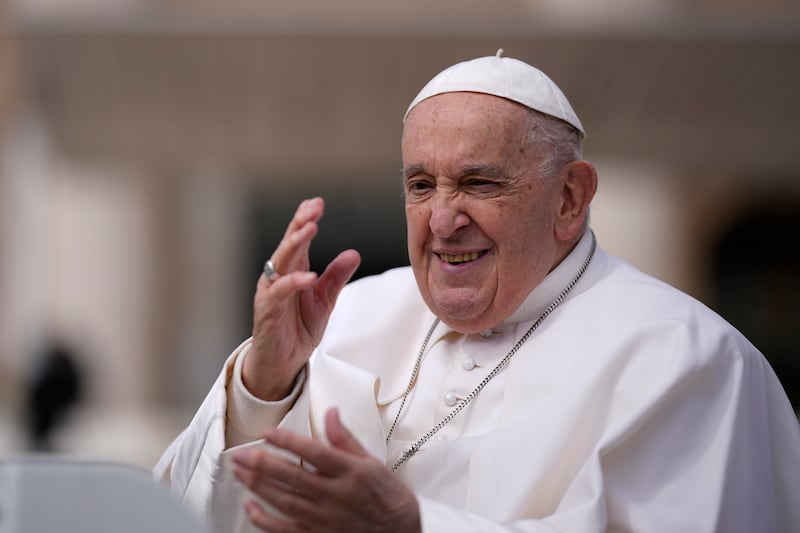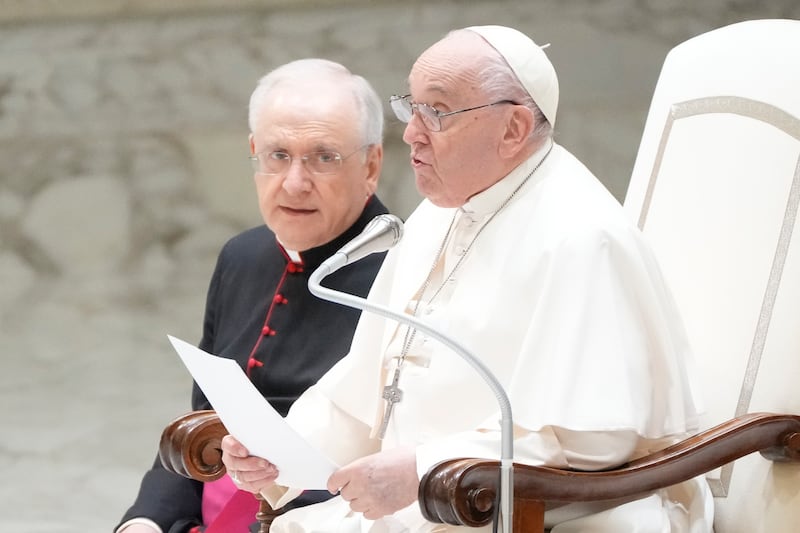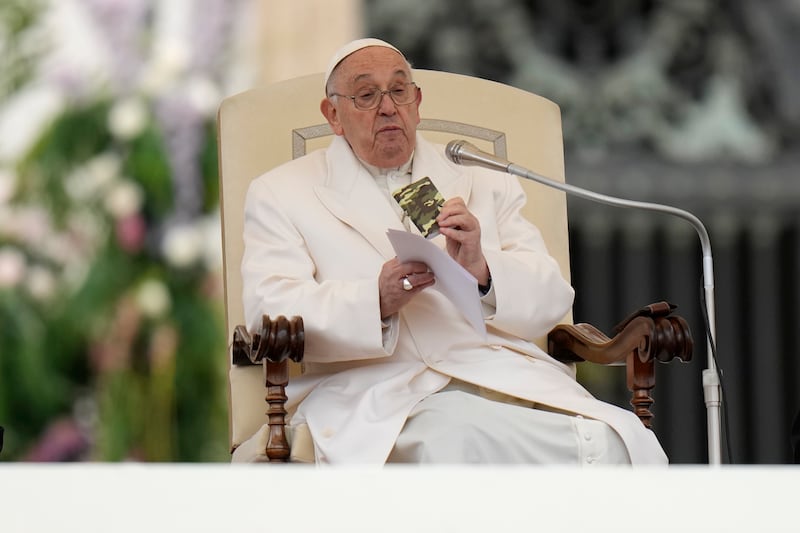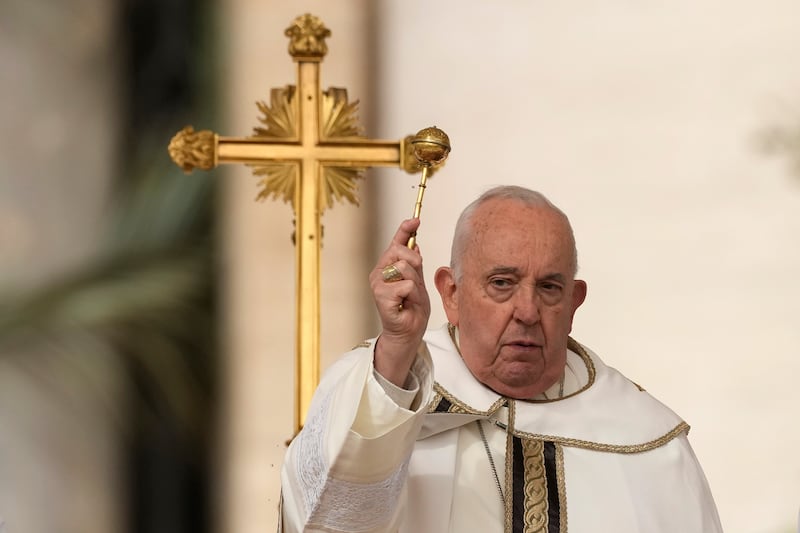I would like to draw attention to the word 'listen', which is decisive in the grammar of communication and a condition for genuine dialogue.
We are losing the ability to listen to those in front of us, both in the normal course of everyday relationships and when debating the most important issues of civil life.
At the same time, listening is undergoing an important new development in the field of communication and information through the various podcasts and audio messages available that serve to confirm that listening is still essential in human communication.
A respected doctor, accustomed to treating the wounds of the soul, was once asked what the greatest need of human beings is. He replied: "The boundless desire to be heard."
This desire often remains hidden, but it challenges anyone who is called upon to be an educator or formator, or who otherwise performs a communicative role: parents and teachers, pastors and pastoral workers, communication professionals and others who carry out social or political service.
From the pages of Scripture we learn that listening means not only the perception of sound, but is essentially linked to the dialogical relationship between God and humanity.
"Hear, O Israel" (Deuteronomy 6:4), the opening words of the first commandment of the Torah, is continually reiterated in the Bible, to the point that Saint Paul would affirm that "faith comes through listening" (Romans 10:17).
The initiative, in fact, is God's, who speaks to us, and to whom we respond by listening to him. In the end, even this listening comes from his grace, as is the case with the newborn child who responds to the gaze and the voice of his or her mother and father.
Among the five senses, the one favoured by God seems to be hearing, perhaps because it is less invasive, more discreet than sight, and therefore leaves the human being more free.
Human beings tend to flee the relationship, to turn their back and "close their ears" so they do not have to listen. The refusal to listen often ends up turning into aggression towards the other, as happened to those listening to the deacon Stephen who, covering their ears, all turned on him at once (Acts 7:57).
It is only by paying attention to whom we listen, to what we listen, and to how we listen that we can grow in the art of communicating, the heart of which is not a theory or a technique, but the "openness of heart that makes closeness possible".
We all have ears, but many times even those with perfect hearing are unable to hear another person. In fact, there is an interior deafness worse than the physical one. Indeed, listening concerns the whole person, not just the sense of hearing. The true seat of listening is the heart.
Though he was very young, King Solomon proved himself wise because he asked the Lord to grant him a "listening heart". Saint Augustine used to encourage listening with the heart, to receive words not outwardly through the ears, but spiritually in our hearts: "Do not have your heart in your ears, but your ears in your heart." Saint Francis of Assisi exhorted his brothers to "incline the ear of the heart".
There is a kind of hearing that is not really listening, but its opposite: eavesdropping. In fact, eavesdropping and spying, exploiting others for our own interests, is an ever-present temptation that nowadays seems to have become more acute in the age of social networks.
Rather, what specifically makes communication good and fully human is listening to the person in front of us, face to face, listening to the other person whom we approach with fair, confident and honest openness.
The lack of listening, which we experience so often in daily life, is unfortunately also evident in public life, where, instead of listening to each other, we often "talk past one another".
This is a symptom of the fact that, rather than seeking the true and the good, consensus is sought; rather than listening, one pays attention to the audience.
Good communication, instead, does not try to impress the public with a soundbite, with the aim of ridiculing the other person, but pays attention to the reasons of the other person and tries to grasp the complexity of reality. It is sad when, even in the Church, ideological alignments are formed and listening disappears, leaving sterile opposition in its wake.
In reality, in many dialogues we do not communicate at all. We are simply waiting for the other person to finish speaking in order to impose our point of view.
In these situations, as philosopher Abraham Kaplan notes, dialogue is a duologue: a monologue in two voices. In true communication, however, the 'I' and the 'you' are both 'moving out', reaching out to each other.
Listening is therefore the first indispensable ingredient of dialogue and good communication. Communication does not take place if listening has not taken place, and there is no good journalism without the ability to listen.
In order to provide solid, balanced, and complete information, it is necessary to listen for a long time. To recount an event or describe an experience in news reporting, it is essential to know how to listen, to be ready to change one's mind, to modify one's initial assumptions.
It is only by putting aside monologues that the harmony of voices that is the guarantee of true communication can be achieved. Listening to several sources, "not stopping at the first tavern" - as the experts in the field teach us - ensures the reliability and seriousness of the information we transmit.
Listening to several voices, listening to each other, even in the Church, among brothers and sisters, allows us to exercise the art of discernment, which always appears as the ability to orient ourselves in a symphony of voices.
But why face the exertion of listening? A great diplomat of the Holy See, Cardinal Agostino Casaroli, used to speak of the "martyrdom of patience" needed to listen and be heard in negotiations with the most difficult parties, in order to obtain the greatest possible good in conditions of limited freedom.
But even in less difficult situations, listening always requires the virtue of patience, together with the ability to allow oneself to be surprised by the truth, even if only a fragment of truth, in the person we are listening to.
The ability to listen to society is more valuable than ever in this time wounded by the long pandemic. So much previously accumulated mistrust towards 'official information' has also caused an 'infodemic', within which the world of information is increasingly struggling to be credible and transparent. We need to lend an ear and listen profoundly, especially to the social unease heightened by the downturn or cessation of many economic activities.
The reality of forced migration is also a complex issue, and no-one has a ready-made prescription for solving it. In order to overcome prejudices about migrants and to melt the hardness of our hearts, we should try to listen to their stories. Give each of them a name and a story. Many good journalists already do this.
In the Church, too, there is a great need to listen to and to hear one another. It is the most precious and life-giving gift we can offer each other. "Christians have forgotten that the ministry of listening has been committed to them by him who is himself the great listener and whose work they should share. We should listen with the ears of God that we may speak the word of God;" thus, the Protestant theologian Dietrich Bonhoeffer reminds us that the first service we owe to others in communion consists in listening to them.
Whoever does not know how to listen to his brother or sister will soon no longer be able to listen to God either.
The most important task in pastoral activity is the "apostolate of the ear" – to listen before speaking, as the Apostle James exhorts: "Let every man be quick to hear, slow to speak" (1:19). Freely giving some of our own time to listen to people is the first act of charity.
A synodal process has just been launched. Let us pray that it will be a great opportunity to listen to one another. Communion, in fact, is not the result of strategies and programmes, but is built in mutual listening between brothers and sisters.
With the awareness that we participate in a communion that precedes and includes us, we can rediscover a symphonic Church, in which each person is able to sing with his or her own voice, welcoming the voices of others as a gift to manifest the harmony of the whole that the Holy Spirit composes.
